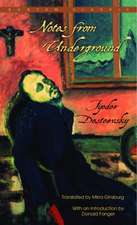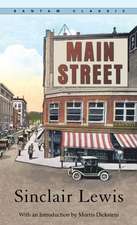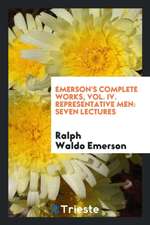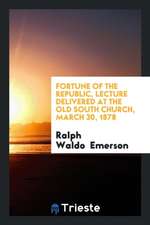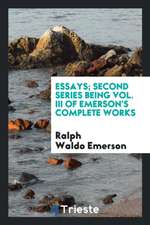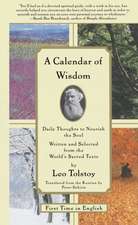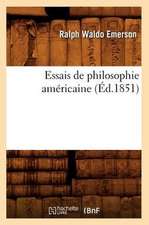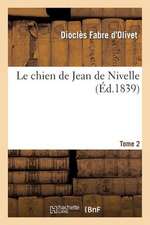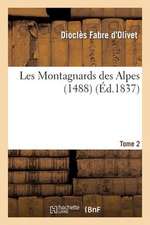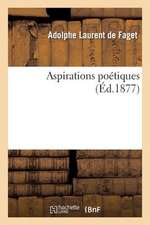Ralph Waldo Emerson: Selected Essays, Lectures and Poems
Autor Ralph Waldo Emersonen Limba Engleză Paperback – 31 aug 1990
The writings featured here show Emerson as a protester against social conformity, a lover of nature, an activist for the rights of women and slaves, and a poet of great sensitivity. As explored in this volume, Emersonian thought is a unique blend of belief in individual freedom and in humility before the power of nature. “I become a transparent eyeball,” Emerson wrote in Nature, “I am nothing; I see all; the currents of the Universal Being circulate through me; I am part or particle of God.” Written over a century ago, this passage is a striking example of the passion and originality of Emerson’s ideas, which continue to serve as a spiritual center and an ideological base for modern thought.
| Toate formatele și edițiile | Preț | Express |
|---|---|---|
| Paperback (2) | 51.92 lei 22-36 zile | |
| Bantam Classics – 31 aug 1990 | 51.92 lei 22-36 zile | |
| Kessinger Publishing – 21 noi 2009 | 97.52 lei 38-44 zile |
Preț: 51.92 lei
Nou
Puncte Express: 78
Preț estimativ în valută:
9.94€ • 10.40$ • 8.27£
9.94€ • 10.40$ • 8.27£
Carte disponibilă
Livrare economică 10-24 martie
Preluare comenzi: 021 569.72.76
Specificații
ISBN-13: 9780553213881
ISBN-10: 0553213881
Pagini: 416
Dimensiuni: 111 x 176 x 23 mm
Greutate: 0.2 kg
Editura: Bantam Classics
ISBN-10: 0553213881
Pagini: 416
Dimensiuni: 111 x 176 x 23 mm
Greutate: 0.2 kg
Editura: Bantam Classics
Notă biografică
Ralph Waldo Emerson (1803 —1882) was a renowned lecturer and writer, whose ideas on philosophy, religion, and literature influenced many writers, including Henry David Thoreau and Walt Whitman. After an undergraduate career at Harvard, he studied at Harvard Divinity School and became an ordained minister, continuing a long line of ministers in his family. He traveled widely and lectured, and became well known for his publications Essays and Nature.
Extras
I
To go into solitude, a man needs to retire as much from his chamber as from society. I am not solitary whilst I read and write, though nobody is with me. But if a man would be alone, let him look at the stars. The rays that come from those heavenly worlds will separate between him and what he touches. One might think the atmosphere was made transparent with this design, to give man, in the heavenly bodies, the perpetual presence of the sublime. Seen in the streets of cities, how great they are! If the stars should appear one night in a thousand years, how would men believe and adore; and preserve for many generations the remembrance of the city of God which had been shown! But every night come out these envoys of beauty, and light the universe with their admonishing smile.
The stars awaken a certain reverence, because though always present, they are inaccessible; but all natural objects make a kindred impression, when the mind is open to their influence. Nature never wears a mean appearance. Neither does the wisest man extort her secret, and lose his curiosity by finding out all her perfection. Nature never became a toy to a wise spirit. The flowers, the animals, the mountains, reflected the wisdom of his best hour, as much as they had delighted the simplicity of his childhood.
When we speak of nature in this manner, we have a distinct but most poetical sense in the mind. We mean the integrity of impression made by manifold natural objects. It is this which distinguishes the stick of timber of the wood-cutter from the tree of the poet. The charming landscape which I saw this morning is indubitably made up of some twenty or thirty farms. Miller owns this field, Locke that, and Manning the woodland beyond. But none of them owns the landscape. There is a property in the horizon which no man has but he whose eye can integrate all the parts, that is, the poet. This is the best part of these men's farms, yet to this their warranty-deeds give no title.
To speak truly, few adult persons can see nature. Most persons do not see the sun. At least they have a very superficial seeing. The sun illuminates only the eye of the man, but shines into the eye and the heart of the child. The lover of nature is he whose inward and outward senses are still truly adjusted to each other; who has retained the spirit of infancy even into the era of manhood. His intercourse with heaven and earth becomes part of his daily food. In the presence of nature a wild delight runs through the man, in spite of real sorrows. Nature says,–he is my creature, and maugre all his impertinent griefs, he shall be glad with me. Not the sun or the summer alone, but every hour and season yields its tribute of delight; for every hour and change corresponds to and authorizes a different state of the mind, from breathless noon to grimmest midnight. Nature is a setting that fits equally well a comic or a mourning piece. In good health, the air is a cordial of incredible virtue. Crossing a bare common, in snow puddles, at twilight, under a clouded sky, without having in my thoughts any occurrence of special good fortune, I have enjoyed a perfect exhilaration. I am glad to the brink of fear. In the woods, too, a man casts off his years, as the snake his slough, and at what period soever of life is always a child. In the woods is perpetual youth. Within these plantations of God, a decorum and sanctity reign, a perennial festival is dressed, and the guest sees not how he should tire of them in a thousand years. In the woods, we return to reason and faith. There I feel that nothing can befall me in life,–no disgrace, no calamity (leaving me my eyes), which nature cannot repair. Standing on the bare ground,–my head bathed by the blithe air and uplifted into infinite space,–all mean egotism vanishes. I become a transparent eyeball; I am nothing; I see all; the currents of the Universal Being circulate through me; I am part or parcel of God. The name of the nearest friend sounds then foreign and accidental: to be brothers, to be acquaintances, master or servant, is then a trifle and a disturbance. I am the lover of uncontained and immortal beauty. In the wilderness, I find something more dear and connate than in streets or villages. In the tranquil landscape, and especially in the distant line of the horizon, man beholds somewhat as beautiful as his own nature.
The greatest delight which the fields and woods minister is the suggestion of an occult relation between man and the vegetable. I am not alone and unacknowledged. They nod to me, and I to them. The waving of the boughs in the storm is new to me and old. It takes me by surprise, and yet is not unknown. Its effect is like that of a higher thought or a better emotion coming over me, when I deemed I was thinking justly or doing right.
Yet it is certain that the power to produce this delight does not reside in nature, but in man, or in a harmony of both. It is necessary to use these pleasures with great temperance. For nature is not always tricked in holiday attire, but the same scene which yesterday breathed perfume and glittered as for the frolic of the nymphs is overspread with melancholy to-day. Nature always wears the colors of the spirit. To a man laboring under calamity, the heat of his own fire hath sadness in it. Then there is a kind of contempt of the landscape felt by him who has just lost by death a dear friend. The sky is less grand as it shuts down over less worth in the population.
II
Commodity
Whoever considers the final cause of the world will discern a multitude of uses that enter as parts into that result. They all admit of being thrown into one of the following classes: Commodity; Beauty; Language; and Discipline.
Under the general name of commodity, I rank all those advantages which our senses owe to nature. This, of course, is a benefit which is temporary and mediate, not ultimate, like its service to the soul. Yet although low, it is perfect in its kind, and is the only use of nature which all men apprehend. The misery of man appears like childish petulance, when we explore the steady and prodigal provision that has been made for his support and delight on this green ball which floats him through the heavens. What angels invented these splendid ornaments, these rich conveniences, this ocean of air above, this ocean of water beneath, this firmament of earth between? This zodiac of lights, this tent of dropping clouds, this striped coat of climates, this fourfold year? Beasts, fire, water, stones, and corn serve him. The field is at once his floor, his work-yard, his play-ground, his garden, and his bed.
"More servants wait on man
Than he'll take notice of."
Nature, in its ministry to man, is not only the material, but is also the process and the result. All the parts incessantly work into each other's hands for the profit of man. The wind sows the seed; the sun evaporates the sea; the wind blows the vapor to the field; the ice, on the other side of the planet, condenses rain on this; the rain feeds the plant; the plant feeds the animal; and thus the endless circulations of the divine charity nourish man.
The useful arts are reproductions or new combinations by the wit of man, of the same natural benefactors. He no longer waits for favoring gales, but by means of steam, he realizes the fable of Aeolus's bag, and carries the two and thirty winds in the boiler of his boat. To diminish friction, he paves the road with iron bars, and, mounting a coach with a ship-load of men, animals, and merchandise behind him, he darts through the country, from town to town, like an eagle or a swallow through the air. By the aggregate of these aids, how is the face of the world changed, from the era of Noah to that of Napoleon! The private poor man hath cities, ships, canals, bridges, built for him. He goes to the post-office, and the human race run on his errands; to the book-shop, and the human race read and write of all that happens, for him; to the court-house, and nations repair his wrongs. He sets his house upon the road, and the human race go forth every morning, and shovel out the snow, and cut a path for him.
But there is no need of specifying particulars in this class of uses. The catalogue is endless, and the examples so obvious, that I shall leave them to the reader's reflection, with the general remark, that this mercenary benefit is one which has respect to a farther good. A man is fed, not that he may be fed, but that he may work.
III
Beauty
A Nobler Want of man is served by nature, namely, the love of Beauty.
The ancient Greeks called the world [characters unavailable - Ancient Greek word for beauty] beauty. Such is the constitution of all things, or such the plastic power of the human eye, that the primary forms, as the sky, the mountain, the tree, the animal, give us a delight in and for themselves; a pleasure arising from outline, color, motion, and grouping. This seems partly owing to the eye itself. The eye is the best of artists. By the mutual action of its structure and of the laws of light, perspective is produced, which integrates every mass of objects, of what character soever, into a well colored and shaded globe, so that where the particular objects are mean and unaffecting, the landscape which they compose is round and symmetrical. And as the eye is the best composer, so light is the first of painters. There is no object so foul that intense light will not make beautiful. And the stimulus it affords to the sense, and a sort of infinitude which it hath, like space and time, make all matter gay. Even the corpse has its own beauty. But besides this general grace diffused over nature, almost all the individual forms are agreeable to the eye, as is proved by our endless imitations of some of them, as the acorn, the grape, the pine-cone, the wheat-ear, the egg, the wings and forms of most birds, the lion's claw, the serpent, the butterfly, sea-shells, flames, clouds, buds, leaves, and the forms of many trees, as the palm.
For better consideration, we may distribute the aspects of Beauty in a threefold manner.
1. First, the simple perception of natural forms is a delight. The influence of the forms and actions in nature is so needful to man, that, in its lowest functions, it seems to lie on the confines of commodity and beauty. To the body and mind which have been cramped by noxious work or company, nature is medicinal and restores their tone. The tradesman, the attorney comes out of the din and craft of the street and sees the sky and the woods, and is a man again. In their eternal calm, he finds himself. The health of the eye seems to demand a horizon. We are never tired, so long as we can see far enough.
But in other hours, Nature satisfies by its loveliness, and without any mixture of corporeal benefit. I see the spectacle of morning from the hilltop over against my house, from daybreak to sunrise, with emotions which an angel might share. The long slender bars of cloud float like fishes in the sea of crimson light. From the earth, as a shore, I look out into that silent sea. I seem to partake its rapid transformations; the active enchantment reaches my dust, and I dilate and conspire with the morning wind. How does Nature deify us with a few and cheap elements! Give me health and a day, and I will make the pomp of emperors ridiculous. The dawn is my Assyria; the sunset and moonrise my Paphos, and unimaginable realms of faerie; broad noon shall be my England of the senses and the understanding; the night shall be my Germany of mystic philosophy and dreams.
Not less excellent, except for our less susceptibility in the afternoon, was the charm, last evening, of a January sunset. The western clouds divided and subdivided themselves into pink flakes modulated with tints of unspeakable softness, and the air had so much life and sweetness that it was a pain to come within doors. What was it that nature would say? Was there no meaning in the live repose of the valley behind the mill, and which Homer or Shakspeare could not reform for me in words? The leafless trees become spires of flame in the sunset, with the blue east for their background, and the stars of the dead calices of flowers, and every withered stem and stubble rimed with frost, contribute something to the mute music.
The inhabitants of cities suppose that the country landscape is pleasant only half the year. I please myself with the graces of the winter scenery, and believe that we are as much touched by it as by the genial influences of summer. To the attentive eye, each moment of the year has its own beauty, and in the same field, it beholds, every hour, a picture which was never seen before, and which shall never be seen again. The heavens change every moment, and reflect their glory or gloom on the plains beneath. The state of the crop in the surrounding farms alters the expression of the earth from week to week. The succession of native plants in the pastures and roadsides, which makes the silent clock by which time tells the summer hours, will make even the divisions of the day sensible to a keen observer. The tribes of birds and insects, like the plants punctual to their time, follow each other, and the year has room for all. By watercourses, the variety is greater. In July, the blue pontederia or pickerel-weed blooms in large beds in the shallow parts of our pleasant river, and swarms with yellow butterflies in continual motion. Art cannot rival this pomp of purple and gold. Indeed the river is a perpetual gala, and boasts each month a new ornament.
But this beauty of Nature which is seen and felt as beauty, is the least part. The shows of day, the dewy morning, the rainbow, mountains, orchards in blossom, stars, moonlight, shadows in still water, and the like, if too eagerly hunted, become shows merely, and mock us with their unreality. Go out of the house to see the moon, and 'tis mere tinsel; it will not please as when its light shines upon your necessary journey. The beauty that shimmers in the yellow afternoons of October, who ever could clutch it? Go forth to find it, and it is gone; 'tis only a mirage as you look from the windows of diligence.
To go into solitude, a man needs to retire as much from his chamber as from society. I am not solitary whilst I read and write, though nobody is with me. But if a man would be alone, let him look at the stars. The rays that come from those heavenly worlds will separate between him and what he touches. One might think the atmosphere was made transparent with this design, to give man, in the heavenly bodies, the perpetual presence of the sublime. Seen in the streets of cities, how great they are! If the stars should appear one night in a thousand years, how would men believe and adore; and preserve for many generations the remembrance of the city of God which had been shown! But every night come out these envoys of beauty, and light the universe with their admonishing smile.
The stars awaken a certain reverence, because though always present, they are inaccessible; but all natural objects make a kindred impression, when the mind is open to their influence. Nature never wears a mean appearance. Neither does the wisest man extort her secret, and lose his curiosity by finding out all her perfection. Nature never became a toy to a wise spirit. The flowers, the animals, the mountains, reflected the wisdom of his best hour, as much as they had delighted the simplicity of his childhood.
When we speak of nature in this manner, we have a distinct but most poetical sense in the mind. We mean the integrity of impression made by manifold natural objects. It is this which distinguishes the stick of timber of the wood-cutter from the tree of the poet. The charming landscape which I saw this morning is indubitably made up of some twenty or thirty farms. Miller owns this field, Locke that, and Manning the woodland beyond. But none of them owns the landscape. There is a property in the horizon which no man has but he whose eye can integrate all the parts, that is, the poet. This is the best part of these men's farms, yet to this their warranty-deeds give no title.
To speak truly, few adult persons can see nature. Most persons do not see the sun. At least they have a very superficial seeing. The sun illuminates only the eye of the man, but shines into the eye and the heart of the child. The lover of nature is he whose inward and outward senses are still truly adjusted to each other; who has retained the spirit of infancy even into the era of manhood. His intercourse with heaven and earth becomes part of his daily food. In the presence of nature a wild delight runs through the man, in spite of real sorrows. Nature says,–he is my creature, and maugre all his impertinent griefs, he shall be glad with me. Not the sun or the summer alone, but every hour and season yields its tribute of delight; for every hour and change corresponds to and authorizes a different state of the mind, from breathless noon to grimmest midnight. Nature is a setting that fits equally well a comic or a mourning piece. In good health, the air is a cordial of incredible virtue. Crossing a bare common, in snow puddles, at twilight, under a clouded sky, without having in my thoughts any occurrence of special good fortune, I have enjoyed a perfect exhilaration. I am glad to the brink of fear. In the woods, too, a man casts off his years, as the snake his slough, and at what period soever of life is always a child. In the woods is perpetual youth. Within these plantations of God, a decorum and sanctity reign, a perennial festival is dressed, and the guest sees not how he should tire of them in a thousand years. In the woods, we return to reason and faith. There I feel that nothing can befall me in life,–no disgrace, no calamity (leaving me my eyes), which nature cannot repair. Standing on the bare ground,–my head bathed by the blithe air and uplifted into infinite space,–all mean egotism vanishes. I become a transparent eyeball; I am nothing; I see all; the currents of the Universal Being circulate through me; I am part or parcel of God. The name of the nearest friend sounds then foreign and accidental: to be brothers, to be acquaintances, master or servant, is then a trifle and a disturbance. I am the lover of uncontained and immortal beauty. In the wilderness, I find something more dear and connate than in streets or villages. In the tranquil landscape, and especially in the distant line of the horizon, man beholds somewhat as beautiful as his own nature.
The greatest delight which the fields and woods minister is the suggestion of an occult relation between man and the vegetable. I am not alone and unacknowledged. They nod to me, and I to them. The waving of the boughs in the storm is new to me and old. It takes me by surprise, and yet is not unknown. Its effect is like that of a higher thought or a better emotion coming over me, when I deemed I was thinking justly or doing right.
Yet it is certain that the power to produce this delight does not reside in nature, but in man, or in a harmony of both. It is necessary to use these pleasures with great temperance. For nature is not always tricked in holiday attire, but the same scene which yesterday breathed perfume and glittered as for the frolic of the nymphs is overspread with melancholy to-day. Nature always wears the colors of the spirit. To a man laboring under calamity, the heat of his own fire hath sadness in it. Then there is a kind of contempt of the landscape felt by him who has just lost by death a dear friend. The sky is less grand as it shuts down over less worth in the population.
II
Commodity
Whoever considers the final cause of the world will discern a multitude of uses that enter as parts into that result. They all admit of being thrown into one of the following classes: Commodity; Beauty; Language; and Discipline.
Under the general name of commodity, I rank all those advantages which our senses owe to nature. This, of course, is a benefit which is temporary and mediate, not ultimate, like its service to the soul. Yet although low, it is perfect in its kind, and is the only use of nature which all men apprehend. The misery of man appears like childish petulance, when we explore the steady and prodigal provision that has been made for his support and delight on this green ball which floats him through the heavens. What angels invented these splendid ornaments, these rich conveniences, this ocean of air above, this ocean of water beneath, this firmament of earth between? This zodiac of lights, this tent of dropping clouds, this striped coat of climates, this fourfold year? Beasts, fire, water, stones, and corn serve him. The field is at once his floor, his work-yard, his play-ground, his garden, and his bed.
"More servants wait on man
Than he'll take notice of."
Nature, in its ministry to man, is not only the material, but is also the process and the result. All the parts incessantly work into each other's hands for the profit of man. The wind sows the seed; the sun evaporates the sea; the wind blows the vapor to the field; the ice, on the other side of the planet, condenses rain on this; the rain feeds the plant; the plant feeds the animal; and thus the endless circulations of the divine charity nourish man.
The useful arts are reproductions or new combinations by the wit of man, of the same natural benefactors. He no longer waits for favoring gales, but by means of steam, he realizes the fable of Aeolus's bag, and carries the two and thirty winds in the boiler of his boat. To diminish friction, he paves the road with iron bars, and, mounting a coach with a ship-load of men, animals, and merchandise behind him, he darts through the country, from town to town, like an eagle or a swallow through the air. By the aggregate of these aids, how is the face of the world changed, from the era of Noah to that of Napoleon! The private poor man hath cities, ships, canals, bridges, built for him. He goes to the post-office, and the human race run on his errands; to the book-shop, and the human race read and write of all that happens, for him; to the court-house, and nations repair his wrongs. He sets his house upon the road, and the human race go forth every morning, and shovel out the snow, and cut a path for him.
But there is no need of specifying particulars in this class of uses. The catalogue is endless, and the examples so obvious, that I shall leave them to the reader's reflection, with the general remark, that this mercenary benefit is one which has respect to a farther good. A man is fed, not that he may be fed, but that he may work.
III
Beauty
A Nobler Want of man is served by nature, namely, the love of Beauty.
The ancient Greeks called the world [characters unavailable - Ancient Greek word for beauty] beauty. Such is the constitution of all things, or such the plastic power of the human eye, that the primary forms, as the sky, the mountain, the tree, the animal, give us a delight in and for themselves; a pleasure arising from outline, color, motion, and grouping. This seems partly owing to the eye itself. The eye is the best of artists. By the mutual action of its structure and of the laws of light, perspective is produced, which integrates every mass of objects, of what character soever, into a well colored and shaded globe, so that where the particular objects are mean and unaffecting, the landscape which they compose is round and symmetrical. And as the eye is the best composer, so light is the first of painters. There is no object so foul that intense light will not make beautiful. And the stimulus it affords to the sense, and a sort of infinitude which it hath, like space and time, make all matter gay. Even the corpse has its own beauty. But besides this general grace diffused over nature, almost all the individual forms are agreeable to the eye, as is proved by our endless imitations of some of them, as the acorn, the grape, the pine-cone, the wheat-ear, the egg, the wings and forms of most birds, the lion's claw, the serpent, the butterfly, sea-shells, flames, clouds, buds, leaves, and the forms of many trees, as the palm.
For better consideration, we may distribute the aspects of Beauty in a threefold manner.
1. First, the simple perception of natural forms is a delight. The influence of the forms and actions in nature is so needful to man, that, in its lowest functions, it seems to lie on the confines of commodity and beauty. To the body and mind which have been cramped by noxious work or company, nature is medicinal and restores their tone. The tradesman, the attorney comes out of the din and craft of the street and sees the sky and the woods, and is a man again. In their eternal calm, he finds himself. The health of the eye seems to demand a horizon. We are never tired, so long as we can see far enough.
But in other hours, Nature satisfies by its loveliness, and without any mixture of corporeal benefit. I see the spectacle of morning from the hilltop over against my house, from daybreak to sunrise, with emotions which an angel might share. The long slender bars of cloud float like fishes in the sea of crimson light. From the earth, as a shore, I look out into that silent sea. I seem to partake its rapid transformations; the active enchantment reaches my dust, and I dilate and conspire with the morning wind. How does Nature deify us with a few and cheap elements! Give me health and a day, and I will make the pomp of emperors ridiculous. The dawn is my Assyria; the sunset and moonrise my Paphos, and unimaginable realms of faerie; broad noon shall be my England of the senses and the understanding; the night shall be my Germany of mystic philosophy and dreams.
Not less excellent, except for our less susceptibility in the afternoon, was the charm, last evening, of a January sunset. The western clouds divided and subdivided themselves into pink flakes modulated with tints of unspeakable softness, and the air had so much life and sweetness that it was a pain to come within doors. What was it that nature would say? Was there no meaning in the live repose of the valley behind the mill, and which Homer or Shakspeare could not reform for me in words? The leafless trees become spires of flame in the sunset, with the blue east for their background, and the stars of the dead calices of flowers, and every withered stem and stubble rimed with frost, contribute something to the mute music.
The inhabitants of cities suppose that the country landscape is pleasant only half the year. I please myself with the graces of the winter scenery, and believe that we are as much touched by it as by the genial influences of summer. To the attentive eye, each moment of the year has its own beauty, and in the same field, it beholds, every hour, a picture which was never seen before, and which shall never be seen again. The heavens change every moment, and reflect their glory or gloom on the plains beneath. The state of the crop in the surrounding farms alters the expression of the earth from week to week. The succession of native plants in the pastures and roadsides, which makes the silent clock by which time tells the summer hours, will make even the divisions of the day sensible to a keen observer. The tribes of birds and insects, like the plants punctual to their time, follow each other, and the year has room for all. By watercourses, the variety is greater. In July, the blue pontederia or pickerel-weed blooms in large beds in the shallow parts of our pleasant river, and swarms with yellow butterflies in continual motion. Art cannot rival this pomp of purple and gold. Indeed the river is a perpetual gala, and boasts each month a new ornament.
But this beauty of Nature which is seen and felt as beauty, is the least part. The shows of day, the dewy morning, the rainbow, mountains, orchards in blossom, stars, moonlight, shadows in still water, and the like, if too eagerly hunted, become shows merely, and mock us with their unreality. Go out of the house to see the moon, and 'tis mere tinsel; it will not please as when its light shines upon your necessary journey. The beauty that shimmers in the yellow afternoons of October, who ever could clutch it? Go forth to find it, and it is gone; 'tis only a mirage as you look from the windows of diligence.
Cuprins
Foreword by Robert D. Richardson, Jr.
NATURE (1836)
Introduction
I.----
II.Commodity
III.Beauty
IV.Language
V.Discipline
VI.Idealism
VII.Spirit
VIII.Prospects
EARLY ESSAYS AND LECTURES
Pray Without Ceasing (1826)
Ethics (1837)
The American Scholar (1837)
Cherokee Letter (1838)
The Divinity School Address (1838)
From ESSAYS, FIRST SERIES (1841)
History
Self-Reliance
The Over-Soul
Circles
From ESSAYS, SECOND SERIES (1844)
The Poet
Experience
Politics
From REPRESENTATIVE MEN (1850)
Uses of Great Men
Montaigne; or, the Skeptic
LATER ESSAYS AND LECTURES
Emancipation in the British West Indies (1844)
Woman (1855)
Thoreau (1862)
POEMS
Concord Hymn
The Rhodora
Each and All
Brahma
Hamatreya
The Snow-storm
The Sphinx
Ode: Inscribed to W.H. Channing
Uriel
Threnody
Blight
Terminus
Poet
Additional Reading
NATURE (1836)
Introduction
I.----
II.Commodity
III.Beauty
IV.Language
V.Discipline
VI.Idealism
VII.Spirit
VIII.Prospects
EARLY ESSAYS AND LECTURES
Pray Without Ceasing (1826)
Ethics (1837)
The American Scholar (1837)
Cherokee Letter (1838)
The Divinity School Address (1838)
From ESSAYS, FIRST SERIES (1841)
History
Self-Reliance
The Over-Soul
Circles
From ESSAYS, SECOND SERIES (1844)
The Poet
Experience
Politics
From REPRESENTATIVE MEN (1850)
Uses of Great Men
Montaigne; or, the Skeptic
LATER ESSAYS AND LECTURES
Emancipation in the British West Indies (1844)
Woman (1855)
Thoreau (1862)
POEMS
Concord Hymn
The Rhodora
Each and All
Brahma
Hamatreya
The Snow-storm
The Sphinx
Ode: Inscribed to W.H. Channing
Uriel
Threnody
Blight
Terminus
Poet
Additional Reading



